Despite a retreat after breaching the 1.2 level against US dollar, the euro has still gained almost +2% since the last ECB meeting. Indeed, the single currency is the best performer so far this year, up13% against the greenback and +8% against the pound, whilst the trade-weighted index has appreciated over 7% since 2Q17. A non-eventful Jackson Hole failed to dampened euro’s rally. Rather, it led EURUSD to surge to as high as 1.2069, a level not seen since early 2015.
Recent Euro Strength Driven by Unattractiveness of Others
While improvement in the Eurozone’s economic outlook and expectations ECB’s QE tapering ahead had been the key drivers of the euro since the second half of the year, recent strength is due to the unattractiveness of other currencies. For instance, US dollar’s weakness was broadly based, as US inflation has been stubbornly subdued and Fed Chair Yellen shifted the focus to defending financial regulations at her Jackson Hole Speech. The White House chaos has raised concerns over a government shutdown in October, let alone the diminished hopes of pro-growth policies and tax reforms. Sterling is hardly a darling as the Brexit negotiation process appear slow. Although the UK published a number of policy papers over the past two weeks, the stances are unrealistic from EU’s point of view. The EU insisted to sort out the "divorce" fee before moving forward to other topics, while the UK preferred to be more "flexible".
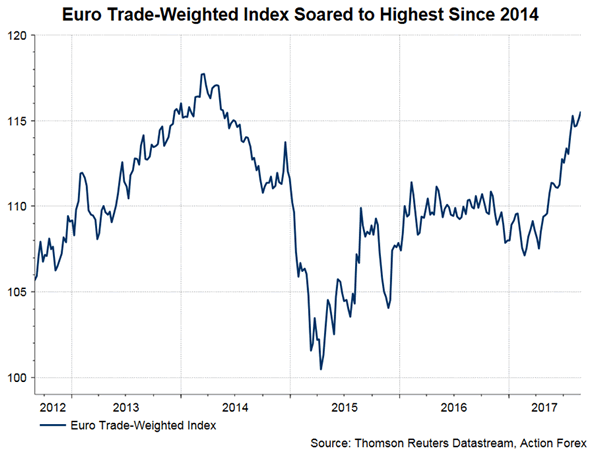
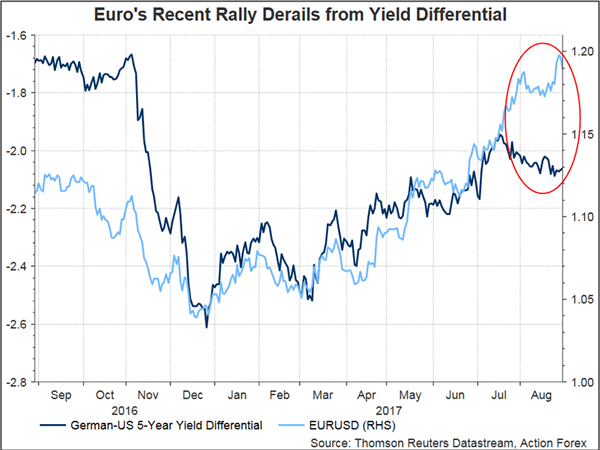
ECB Meeting Preview
ECB’s Warning over Euro Less Stringent than Years Ago
Euro’s relentless rally of late has triggered some speculations that the ECB might delay QE tapering. We don’t think so! While we agree that the ECB has turned more cautious over its policy communications so as not to send euro higher, it is not as vigilant about euro’s outlook as in several years ago. Back in April 2014, Draghi noted explicitly in an occasion that "the policy stance may also be affected by a continued appreciation of the exchange rate. The exchange rate is not in itself a policy target, but a rise in the exchange rate, all else being equal, implies a tightening of monetary conditions, a downward impact on inflation and potentially a threat to the ongoing recovery. If so, this would call for policy action to maintain the current accommodative stance". At the meeting minutes in July 2017, he raised concerns about the euro’s appreciation but in a milder language: concerns were expressed about the risk of the exchange rate overshooting in the future. The economic environment (inflation, economic growth and confidence levels, etc.) has changed significantly from three years ago.
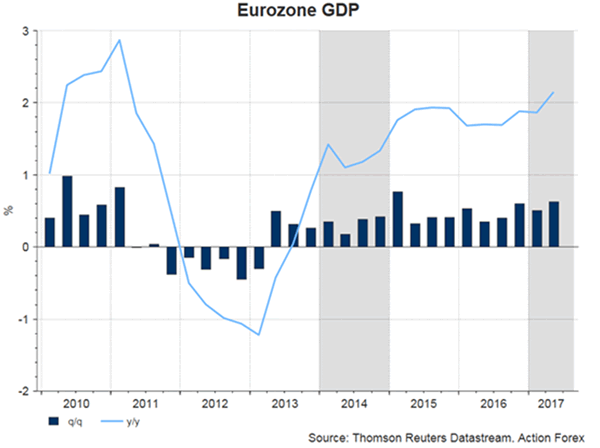
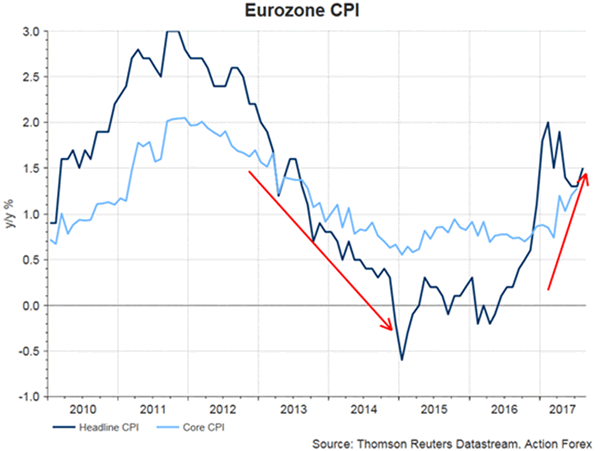
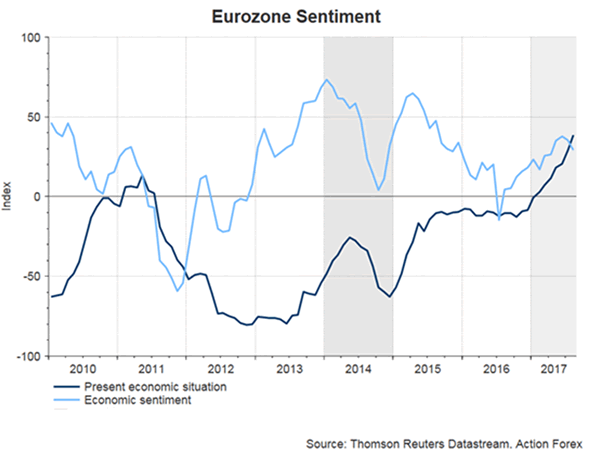
Speculative Positions Elevated but Less Extreme after Adjusting for Trading Volume
On speculative positioning, the aggregate non-commercial net long position stays at extreme level – a level not seen since 2011. However, after adjusting with trade volume (open interest), the situation is not that bad, though remains elevated. The same applies to hedge funds.
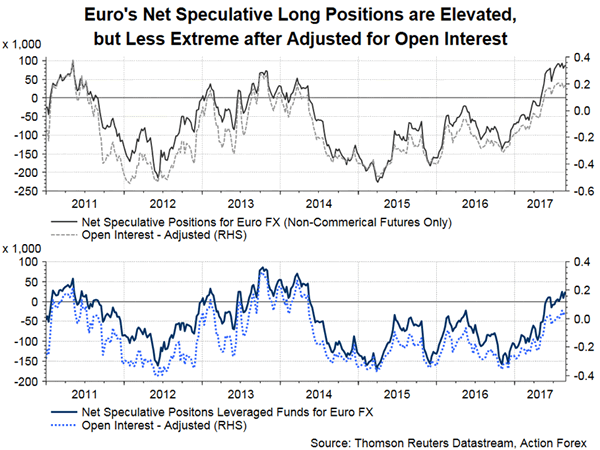
At the upcoming meeting on September 7, we expect ECB to maintain the rhetoric that "the net asset purchases, at the current monthly pace of 60B euro, are intended to run until the end of December 2017, or beyond, if necessary, and in any case until the Governing Council sees a sustained adjustment in the path of inflation consistent with its inflation aim". Policymakers would also warn of currency appreciation. The update on economic projections might show mild downward revision on GDP growth and inflation, as the technical assumption of the euro has been increased. At the Q&A session, Draghi would probably stay neutral in the tapering schedule. We expect QE tapering announcement would be made in October.
